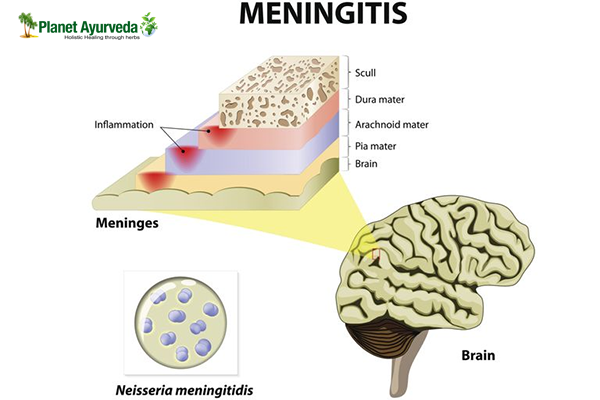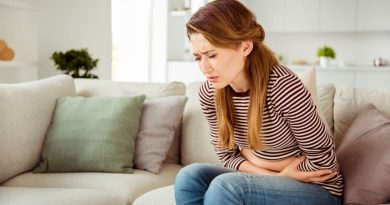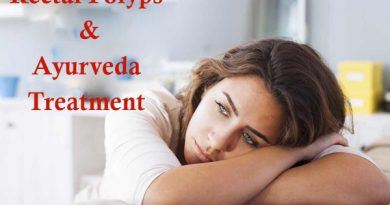How Meningitis can be Treated Naturally?
What are Meninges?
Meninges are defined as the three membranes (the dura mater, arachnoid and pia mater) that line skull as well as the vertebral canal that encloses the spinal cord and the brain. These meninges along with the cerebrospinal fluid serve as the brain protectors which is a barrier that prevents the germs or traumatic process from directly affecting the brain.
As per Ayurveda Aspect
In Ayurveda it is correlated to mastishak Aavarana shoth. There is an involvement of the all the three dohsas which causes pain and inflammation in the mastishak (brain) and sushmuna (spinal cord).
As per Modern Aspect

What is Meningitis?
Meningitis is an infection characterized by an inflammation of the membranes (meninges) that surrounds the brain as well as the spinal cord. It can be caused by bacterial, viral, fungal or parasitic infection. It has several types which tend to affect the different age groups. Bacterial meningitis can be life-threatening, viral meningitis is less severe and fungal meningitis is a rare form that happens in people whose immunity is very low.
What are the Types of Meningitis?
The most common types of meningitis include:
- Bacterial meningitis
- Viral meningitis
- Chronic meningitis
- Fungal meningitis
Bacterial Meningitis
This type of meningitis is a life-threatening that mostly spreads among people who are in close contact with the affected person. In this condition, bacteria enter the bloodstream and travels to the spinal cord and the brain.
Such bacteria are: Streptococcus pneumonia, haemeophilus influenza, neisseria meningitidis etc.
Viral Meningitis
The infection caused by this type of meningitis is often less serious and goes by its own. But if once this virus is triggered then it can even cause diarrhea.
Such viruses are HIV and herpes simplex virus.
Chronic Meningitis
Chronic meningitis results of a slow-growing virus that surrounds the membranes. These bacteria mostly take two to three weeks to grow and affect the person. A person might experience headache, fever, mental fog, and vomiting.
Fungal Meningitis
Fungal meningitis is rare and can cause chronic meningitis. The chances are mainly fewer to spread from one person to another.
What are the Symptoms of Meningitis?
Symptoms of meningitis can take hours to a few weeks to develop. But the early symptoms may mimic influenza (flu).
Some possible symptoms in anyone older than the age of 2 includes:
- Stiffness in neck
- Sudden high fever
- Severe headache along with nausea or vomiting
- Low concentration power
- Confusion
- Seizures
- Sleepiness or difficulty in waking up
- Loss of appetite and thirst
- Skin Rashes
Symptoms in Newborn Babies and Infants
- Constantly crying
- High-grade fever
- Irritability
- Excessive sleepiness
- Inactivity
- Poor feeding
- A small bulge in the soft spot on the baby’s head
- Stiffness in neck and body
What are the Risk Factors for Meningitis?
Risk factors that increase the chances of meningitis
Age: It occurs mostly in children younger than the age of 5 and bacterial meningitis is mostly occurs in those who are under age of 20
Skipping vaccinations: There is an increase in the chances of anyone who has not completed the vaccination schedule.
Pregnancy: Pregnancy increases the chances of listeriosis, which is caused by the bacteria listeria that increases the chances of stillbirth, premature delivery, and miscarriage.
Natural Treatment for Meningitis
Planet Ayurveda offers a reliable and effective treatment that can effectively manage the disease without having side effects or complications. It is meningitis care pack and this pack is formulated with a combination of 4 powerful effective formulations. These formulations are prepared under the guidance of MD Ayurveda experts. These are 100% pure, natural and are free from fillers, chemicals, additives, colors and strictly follow the principles of Ayurveda.
This pack contains:
- Brahmi
Brahmi has been used in Ayurveda since ancient times that provide strength to the brain and it is believed that it has very effective results on the brain. Being a brain tonic it has a calming effect on the brain that relaxes the brain. According to Ayurveda this herb balances all the three doshas of the body and is formulated with the pure extract of Brahmi. Brahmi is an anti-stress and has a rejuvenating property. Regular use of these capsules relaxes the brain tissues and reduces the symptoms related to meningitis such as headache, confusion, seizures, etc.
Dosage: 1 or 2 capsules two times a day with plain water after meals.
- Ashwagandha Capsules

In this shloka, actions and therapeutic uses of ashwagandha are explained.
Ashwagandha is astringent, hot and bitter in taste. This herb pacifies Vata as well as Kapha dosha, cures poisoning, reduces ulcer formation and acts as a spermopiotic and body tonic that maintains the overall health of the body.
(Reference: Dhanvantri nighantu (Guguchiyadi Varg) Shloka-263)
Ashwagandha capsules are effective herbal formulations that are beneficial in treating fatigue, nerve pain, neck stiffness, etc. These capsules are prepared from the natural and standardized extract of ashwagandha and have no side effects. These capsules provide strength to the muscles and increase physical stamina. The most important benefit of these capsules is that it can be given to growing children as well as old age people.
Dosage: 1 to 2 capsules two times a day with water after meals.
- Kaishore Guggul
Kaishore guggul is a wonderful classical herbal formulation which is very effective in providing relief from the symptoms associated with meningitis. This formulation is an amazing blend of several effective herbs that are known to be good natural meningitis treatment. It contains herbs like maricha, pippali, haritaki, bibhitaki, Amalaki, guggul, ginger, vidanga, Indian jalap, and red physic nut. These herbs have the great medicinal properties in Ayurveda which are known to be effective in reducing the inflammation. Shunthi present in it pacifies the aggravated Vata dosha in the body and maintains the balance of Pitta and Kapha Dosha.
Dosage: 1 or 2 tablets two or three times a day with plain water after meals.
- Boswellia Curcumin
This combination of Boswellia and curcumin has become popular nowadays. The main reason behind this is its efficacy because these herbs have anti-inflammatory properties which reduce the inflammation related to meningitis. Curcuminoids- the active compounds of the curcumin present in it are pure and standardized which give better results. Another herb is Boswellia, which is commonly known as shallaki. Resins of this herb are used to formulate its standardized extract. It has an effective role in treating pain, swelling, and inflammation.
Dosage: 1 or 2 capsules two times a day with water after meals.
Some Preventive Tips
- Wash your hands properly
- Stay healthy and maintain the body’s immune system
- Cover your mouth
- Maintain proper hygiene




